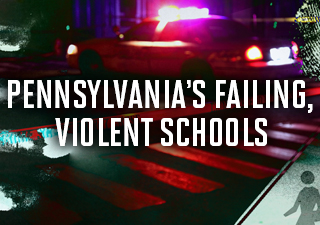Media

Will Higher Taxes and Funding Save Students?
Philadelphia is in the midst of a crisis. According to the National Center for Education Statistics, more than 80 percent of 4th and 8th grade students did not reach proficiency in math and reading in 2013.
For years, the School District of Philadelphia has been plagued by poor performance and budget challenges. And to address the most recent challenges, some have suggested higher cigarette taxes and more funding as the solution. But raising cigarette taxes, which would disproportionately affect the poor, is not real reform.
Just as a funding mechanism, increasing cigarette taxes proves to be inadequate, as it encourages smuggling, which would mean a loss of sales for businesses and decline in tax revenue for governments.
There’s also the issue of fairness. For example, say a family in Philadelphia is already sacrificing to put their son through private school. And because both parents are smokers, they would feel the painful effects of the proposed tax increase. Is it fair that they bear an even bigger tax burden due to years of bad public policy decisions?
Still, don’t Philadelphia schools need more funding? It has to come from somewhere, right?
The School District of Philadelphia already spends about $14,000 per student, which is also around the state’s average for per-pupil spending. At approximately $25 billion, overall spending on Pennsylvania public schools is at an all-time high.
Yet, we haven’t seen the results expected from such an enormous investment. In Pennsylvania, nearly three out of five 8th graders are not proficient in math and reading, and according to a Cato Institute analysis, since 1972, SAT scores have slipped, despite a 120 percent increase (adjusted for inflation) in education spending.
Education is the key to a better future for students. This is why it’s critical to push for meaningful education reforms that put parents and students in charge of education.
In Philadelphia, as students languish in violent and failing schools, their quest for a better life becomes much harder. As each year passes without a quality education, they fall further and further behind their peers.
Instead of unfairly taxing individuals to spend more on education, public officials should strongly consider a proven solution to the state’s education woes: school choice. In the end, Philadelphia’s school crisis isn’t about money. It’s about allowing failed policies to continue—with kids paying the price.